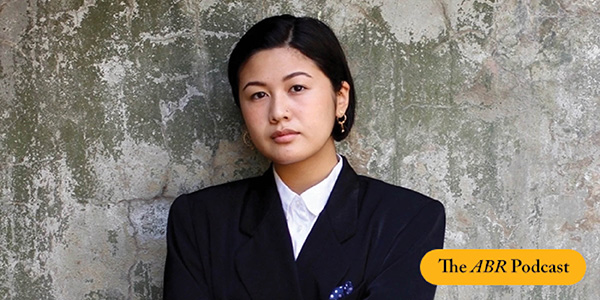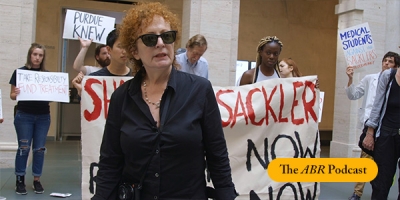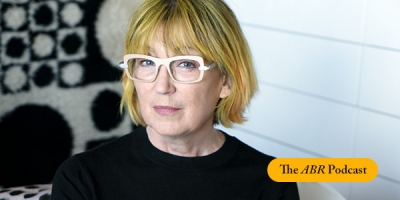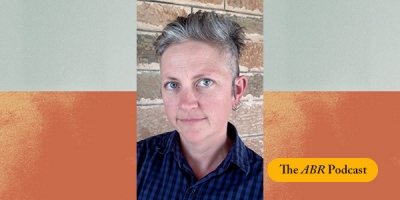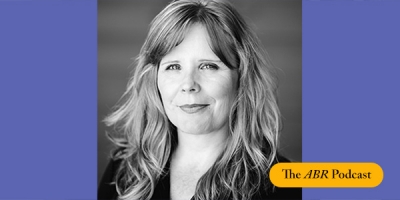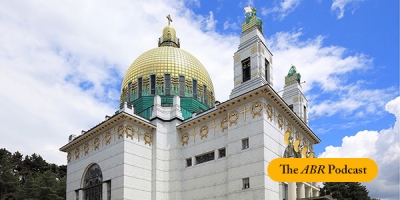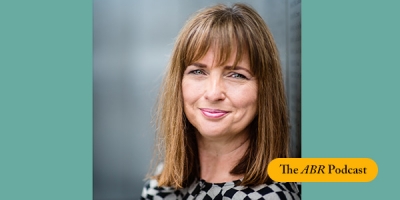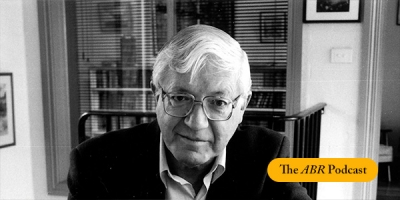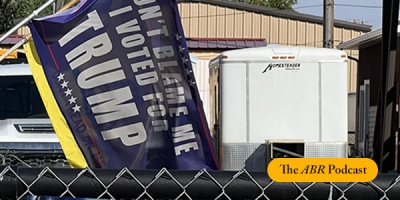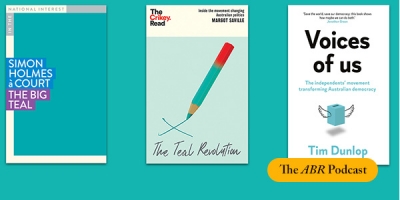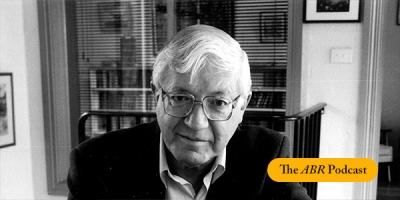Podcast
The ABR Podcast
Released every Thursday, the ABR podcast features our finest reviews, poetry, fiction, interviews, and commentary.
Subscribe via Apple Podcasts, Stitcher, Google, or Spotify, or search for ‘The ABR Podcast’ on your favourite podcast app.
Thought’s tempo
Essays that imagine otherwise
This week, on The ABR Podcast, Mindy Gill reviews Dead and Alive, Zadie Smith’s latest essay collection. For Gill, Smith’s essays ‘have an uncanny habit of arriving precisely when the culture shifts’. Dead and Alive ranges across technology and digital surveillance, authorship and literature, and the erosion of public space, among other urgent concerns. Considered together, ‘these essays reveal continuities otherwise invisible when read in isolation: a set of preoccupations that cut across ostensibly tangential subjects’.
Mindy Gill was ABR’s 2021 Rising Star. A poet, critic, and former editor-in-chief of Peril magazine, Gill is an Associate Lecturer of Creative Writing at Queensland University of Technology. She has won the Queensland Premier’s Young Publishers and Writers Award and the Tom Collins Poetry Prize. Her collection of poems, August Burns the Sky, was shortlisted for the Thomas Shapcott Poetry Prize. Here is Mindy Gill with ‘Thought’s tempo: Essays that imagine otherwise’, published in the January-February issue of ABR.’
Recent episodes:
In this week’s ABR Podcast, film critic Anne Rutherford reviews Laura Poitras’s documentary All the Beauty and the Bloodshed, last year’s winner of the Golden Lion for Best Film at the Venice Film Festival. The film traces a campaign led by artist Nan Goldin to draw attention to America’s prescription painkiller epidemic via highly staged events, including a spectacular ‘die-in’ at New York’s Guggenheim Museum in 2019. Here is Anne Rutherford, Adjunct Associate Professor in Cinema Studies at Western Sydney University and the author of What Makes a Film Tick.
... (read more)Shirley Hazzard is widely regarded as one of Australia’s finest novelists, even though she published only four novels during her long lifetime. Now, Professor Brigitta Olubas from the University of New South Wales has written the first major literary biography of the writer in Shirley Hazzard: A writing life (Virago/Farrar, Straus and Giroux). In this week’s ABR podcast, ABR Editor Peter Rose interviews Professor Olubas about her study of the ‘complex, alluring, peripatetic artist’.
... (read more)This week the ABR Podcast considers Revive, Labor’s new National Cultural Policy. In a commentary for the March issue of ABR, Jennifer Mills, novelist and director of the Australian Society of Authors, separates the theatre from the substance at the launch of Revive. Mills asks how, precisely, Writers Australia will function, and whom it will benefit. Listen to Jennifer Mills reading ‘A revival meeting at the Espy: Labor’s new National Cultural Policy’.
... (read more)The ABR Elizabeth Jolley Short Story Prize, one of the world’s leading prizes for short fiction, is now open and closes on April 24, with total prize money of $12,500. In this week’s ABR Podcast, we feature Maria Takolander’s story ‘A Roānkin Philosophy of Poetry’, which won ABR’s short story competition in 2010, the year before it was renamed the Jolley Prize. It is one of the best-read features on ABR’s website, which hosts content going back to 1978. ‘A Roānkin Philosophy of Poetry’ is an artful take on academic intrigue and absurdism. Maria Takolander’s story appeared in the December 2010–January 2011 issue of ABR. Listen to Maria Takolander reading her story thirteen years later.
... (read more)Whereas many look to Vienna for its imperial architecture, the city developed a rich and complex relationship with modernist forms when they exploded across Europe in the early twentieth century. In this week’s ABR Podcast, Christopher Menz, former Director of the Art Gallery of South Australia, explains this fascinating aspect of Viennese cultural history – including its surprising connection with Australia. Christopher Menz and ABR Editor Peter Rose will be leading a cultural tour of Vienna from October 13 to 24 for Academy Travel. Listen to Christopher Menz in conversation with Academy Travel’s Stuart Barrie here.
... (read more)This week we feature the 2013 winner of the ABR Elizabeth Jolley Short Story Prize, one of the world's leading prizes for a short story written in English. Michelle Michau-Crawford’s ‘Leaving Elvis’ is a story about regret and unlikely heroes, which has ‘echoes of the distinctive elements of Elizabeth Jolley’s own fiction’, according to the 2013 Jolley Prize judges. The 2023 Jolley Prize is currently open for entries. Listen to Michelle Michau-Crawford, a Western Australian writer of fiction, non-fiction, and poetry, read 'Leaving Elvis'.
... (read more)This week’s ABR Podcast is a special feature on the work and life of one of Australia’s finest poets, Peter Porter (1929-2010). Morag Fraser, currently at work on a biography of Porter, introduces the podcast, setting out the major currents of his life. From there, fifteen poets and critics read from the Porter oeuvre, in all its ‘variety and depth’, explains Fraser, and offer their own memories of the man. Listen to Gig Ryan, Sarah Holland-Batt, Martin Flanagan, John Kinsella, Judith Beveridge and more read from Porter’s making with words.
... (read more)In this week’s ABR Podcast, Timothy J. Lynch, Professor of American Politics at the University of Melbourne, considers the November 2022 American midterm elections. Lynch finds reason to ‘to be cheerful’, for what voters communicated – more than anything else – was their growing intolerance for a new brand of ideologically driven, conspiratorial politics. Listen to Timothy J. Lynch with ‘Enough already! Post-Trump America returns to the centre’.
... (read more)Since the May 2022 federal election, several books have been published seeking to explain the rise of the teal independents. In this week’s ABR Podcast, Dennis Altman, a Vice-Chancellor’s Fellow at La Trobe University, reads his review of three such books. Altman argues that the media’s concern with the teals borders on an ‘obsession’, blinding them to other cross-currents in the Australian political landscape. Listen to Dennis Altman’s ‘Teal Talk: Exaggerating the independents’ revolution’.
... (read more)In this week’s Podcast we’re delighted to present the five poems shortlisted in the 2023 Peter Porter Poetry Prize. This happily alliterative prize was created in 2005 and renamed in 2011, the year after the great poet’s death. Peter Rose introduces our far-flung quintet, who then introduce and read their poems. Further details and illuminating comments on the individual poems by the judges can be found here. We hope you enjoy these wonderful poems. It’s a great way to get to know them before the prize ceremony on Thursday, 19 January.
... (read more)
